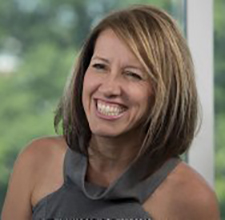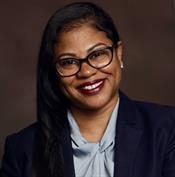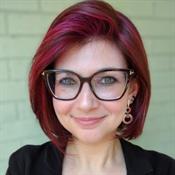How Spelman's Bold Move Away from 'English' Honors Black Women's Voices
The nation's top-ranked HBCU moves beyond a department name rooted in colonial tradition, embracing a major that reflects both its students' futures and its mission.
In a quiet revolution unfolding on Spelman College's campus, the nation's No. 1 historically Black college according to U.S. News & World Report's 2025 rankings, has joined a growing movement in higher education: It eliminated its English department.
Not the courses. Not the faculty. Not the major itself. But the name — that centuries-old academic label that conjures images of Shakespeare, the Brontës, and the Anglo literary canon — is gone.
In its place: the Department of Literature, Media and Writing.
 "When you say you're an English major, people often say, 'what do you do with that?'" says Patricia "Trish" Ventura, Ph.D., chair of the newly renamed department. In a video explaining the change she says, "Our major deals with so many areas."
"When you say you're an English major, people often say, 'what do you do with that?'" says Patricia "Trish" Ventura, Ph.D., chair of the newly renamed department. In a video explaining the change she says, "Our major deals with so many areas."
But the shift represents far more than a rebranding exercise or an attempt to modernize a musty academic discipline. It's a deliberate act of decolonization — a shedding of linguistic and intellectual baggage that Spelman's leadership argues no longer serves its students – Black women preparing to enter fields where their voices have historically been marginalized.
Film. Television. Digital media. Creative writing. Professional writing. Publishing. Journalism. Marketing. All centered on what Ventura calls "independent, critical thinking and questioning" — skills that translate into power.
"People often associate English with K-12 teaching — which is a great thing and some of our students go that route — but most of our students do all sorts of other things," Ventura says.
"Our major has always been a successful launching point for politics, journalism, PR, marketing, movies and TV, human resources, publishing and editing, activism, as well as grad school and professional programs, especially law school and health professions."
A Student's Perspective
 Bailey Johnson, C'2026, a graduating senior majoring in literature, media and writing with dual minors in management and organization and theater and performance, has lived that reality.
Bailey Johnson, C'2026, a graduating senior majoring in literature, media and writing with dual minors in management and organization and theater and performance, has lived that reality.
"I truly love the department's recent change to the Department of Literature, Media and Writing because it broadens opportunities and takes English majors out of a stereotypical box," Johnson says. "In my experience, people often want to categorize me only as a writer or teacher, when I've been able to explore so much more about how we communicate. For me personally, that exploration has been through marketing, but I know for other English majors it could be law, literature, or many other fields."
"We want to emphasize the diasporic texts and media and the roles of Black women especially. Basically, the new name and major just make more transparent what we do in our classes — that is, we focus on critical thinking and liberatory ideas." -- Dr. Patricia "Trish" Ventura
The numbers bear witness. According to recent data, liberal arts majors earn an average starting salary of $51,100 in early-career positions, with substantial earnings growth over time. Spelman's track record amplifies these figures — the College boasts one of the highest rates of Black women entering Fortune 500 leadership, top-tier law schools and medical programs among HBCUs.
But the change runs deeper than career preparation. It's about intellectual freedom.
"We've changed our major curriculum to move away from the colonial legacies associated with English literature," Ventura explains. "Decolonizing our major means foregrounding how we work with cultural texts from a wide range of places and traditions."
The curriculum now embraces what Ventura calls "liberatory theories" — Black feminist critical thinking and analytical frameworks that examine how power, race and gender shape storytelling across every medium. Students might analyze Octavia Butler and Shakespeare in the same semester, exploring slave narratives alongside film theory, Toni Morrison alongside British literature — all through liberatory analytical approaches rather than traditional national literature frameworks.
 Michelle S. Hite, Ph.D., director of the Ethel Waddell Githii Honors Program and associate professor of literature, media and writing, reflects on the significance of this redesign:
Michelle S. Hite, Ph.D., director of the Ethel Waddell Githii Honors Program and associate professor of literature, media and writing, reflects on the significance of this redesign:
"I'm excited for the name change. It better reflects the intellectual breadth and reach of the very talented, trained, and skilled faculty in the department," Hite says.
"It better captures that expertise with far greater precision than the previous one. And once you're inside of it, I love that Black women's ideas organize its central precepts. It's an elegantly designed major."
An Innovative Curriculum
The curriculum change reflects expansion. Classes in British and American literature are still offered, but the major no longer structures requirements around national literature traditions. Instead, the emphasis shifts to liberatory analytical approaches that can be applied across all texts and cultural genres.
"We want to broaden the communities that we speak to and study; and we want to emphasize the diasporic texts and media and the roles of Black women especially," Ventura says. "Basically, the new name and major just make more transparent what we do in our classes — that is, we focus on critical thinking and liberatory ideas."
Joining a National Movement
The disciplinary formation now commonly known as "English" began to take shape during the height of the British Empire as a vehicle for spreading Western culture to colonized populations. For an institution founded in 1881 to educate Black women just 16 years after Emancipation, the colonial baggage felt increasingly incompatible with its mission of centering Black women's intellectual traditions.
 Deanna Koretsky, Ph.D., associate professor in the department, situates the shift within a broader reckoning in higher education. "As a disciplinary designation, 'English' reflects colonial legacies tied to the use of the English literary canon as a tool of oppression," Koretsky says in materials presented to the curriculum committee.
Deanna Koretsky, Ph.D., associate professor in the department, situates the shift within a broader reckoning in higher education. "As a disciplinary designation, 'English' reflects colonial legacies tied to the use of the English literary canon as a tool of oppression," Koretsky says in materials presented to the curriculum committee.
"Renaming the department and deemphasizing colonial canons reflects our shared pedagogical and scholarly emphasis on understanding and challenging the ways in which colonial histories have shaped cultural hierarchies and knowledge systems."
Charting the Path Forward
On Oct. 30, 2024, the department's faculty made it official, voting to adopt the new name and curriculum. Among HBCUs, Howard University's Department of English changed its name first, though Spelman was already in deliberations. The moves reflect a broader trend, with Cornell, Bryn Mawr, Georgia Tech, the University of the West Indies in Jamaica and Nairobi University in Kenya also shifting away from the traditional designation.
"In practice, our department already exceeds traditional English curricula, foregrounding how literature intersects with film, digital media, visual narratives, and other textual forms," Koretsky says. "The new name and curriculum simply better captures what we already do."
Each component carries strategic weight.
-
"Literature" signals global reach beyond the English canon, encompassing "non-traditional and non-canonical forms of expression, from Indigenous and Afrodiasporic oral and visual storytelling to digital activism," department faculty explain, while still maintaining the foundation in literary studies that includes canonical texts.
-
"Media" spotlights the department's two-decade-old minor in Film Studies and Visual Culture.
-
"Writing" acknowledges the department's teaching of first-year composition to the entire student body, plus specialized courses in creative and professional writing.
For students considering the major, the restructuring offers clarity about what awaits after graduation. "Even in the wake of economic downturns, our majors have gone on to top graduate and professional schools and have built successful careers in areas such as arts administration, communications, politics, journalism, public health, medicine, technology, business, law, and education," Koretsky notes.
Bureau of Labor Statistics data projects 6% growth through 2032 for marketing managers and public relations specialists, 7% growth for film and video editors — all fields where the department's graduates compete successfully.
The department is partnering with the Georgia Film Academy, connecting students with major studios operating in Georgia's entertainment industry. Students can earn production certificates preparing them for behind-the-camera careers where Black women remain vastly underrepresented. According to UCLA's Hollywood Diversity Report, Black women directed just 5.4% of theatrical films in 2022.
Faculty research reflects the department's expansive vision. "Even with the name and major curriculum change, our faculty continue their excellent research from addiction and drug-war narratives to race and media to disability studies and nineteenth century literatures to digital humanities," Ventura says. "Our creative writers publish poetry collections and novels that capture the spirit of our era, while our film faculty study everything from horror to Hong Kong cinema."
Koretsky frames the transformation as meeting students where their futures live: "This 21st-century major acknowledges the dynamic relationship between technology and textual production, teaching students to analyze a variety of texts and mediums, apply critical theory to real-world problems, and articulate solutions using written, oral, visual, and digital modes."
The payoff, she argues, is graduates armed with "skills in critical thinking, writing, synthesis, problem solving, creativity, empathy and interpersonal communication that are essential to staying competitive in today's job market."
"The new curriculum supports Spelman's commitment to innovation, challenging injustice, and honoring the lives and legacies of Black women of the past, present, and future," Koretsky adds. "It reflects our department's commitment to preserving tradition while looking ahead."
An Evening of Enlightenment
The department will showcase its vision Oct. 24 at 7 p.m. in the Olivia Hanks Cosby, Ed.D. Auditorium with bestselling author Jason Reynolds, whose young adult novels centering Black joy have sold millions of copies. The keynote conversation will be moderated by Lakeysha Hallmon, Ed.S., an Atlanta-based social entrepreneur and founder of The Village Market, a national initiative supporting Black-owned businesses through commerce, marketplaces and campaigns. The event is hosted in collaboration with the nonprofit Page Turners Make Great Learners and organized by Sequoia Maner, Ph.D., assistant professor in the department. It is free and open to the community and prospective students.
For Black women considering where to invest four years and six figures, Spelman's message is clear: Your stories matter. Your voice deserves training. Your intellect will be centered, not marginalized. And the degree you earn will carry you wherever you choose to go.
"In short, our literature, media and writing department is a fantastic place to start your next chapter," Ventura says. Learn more about the major and explore course offerings. Admissions applications to Spelman for fall 2026 are now open.
